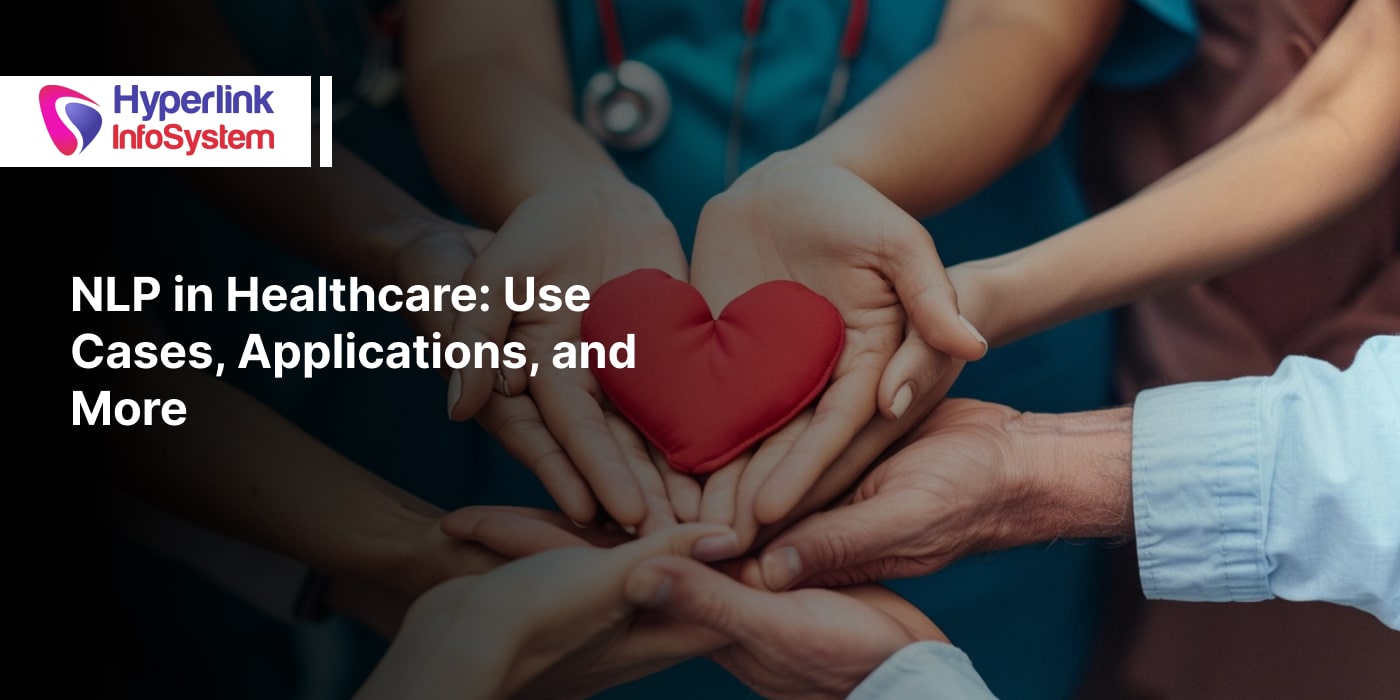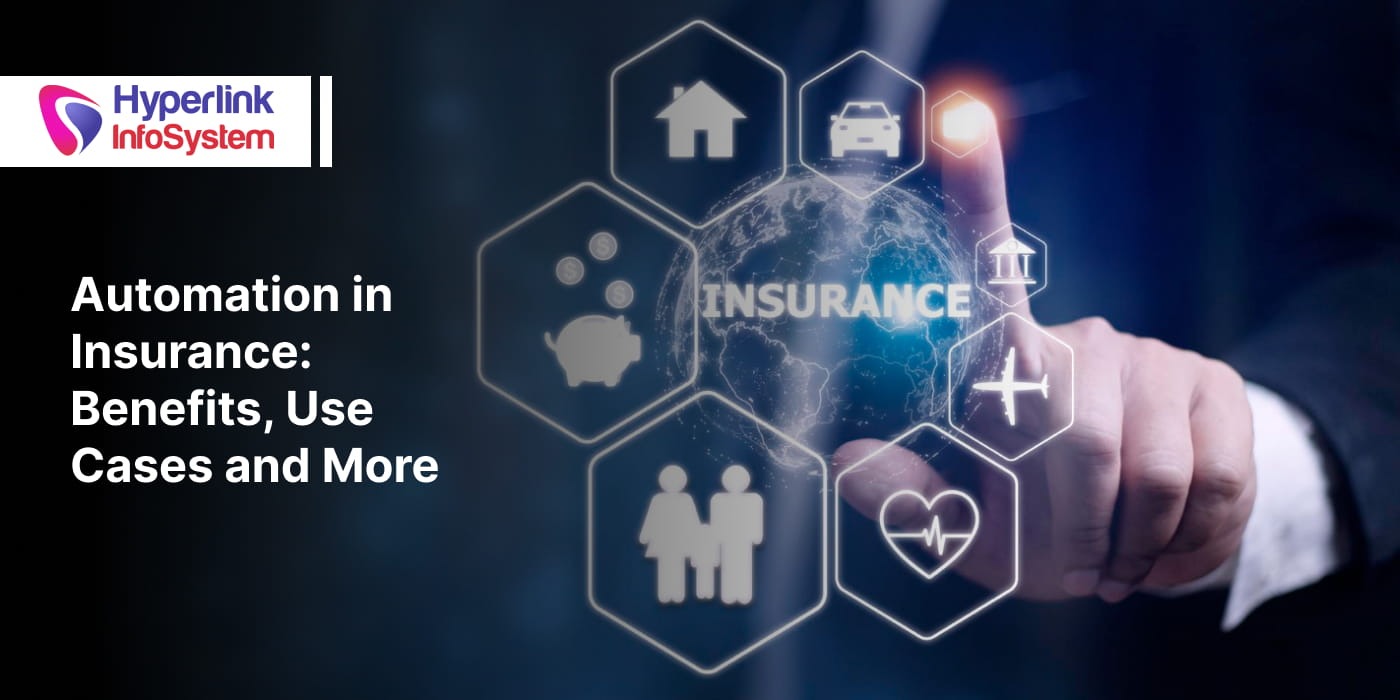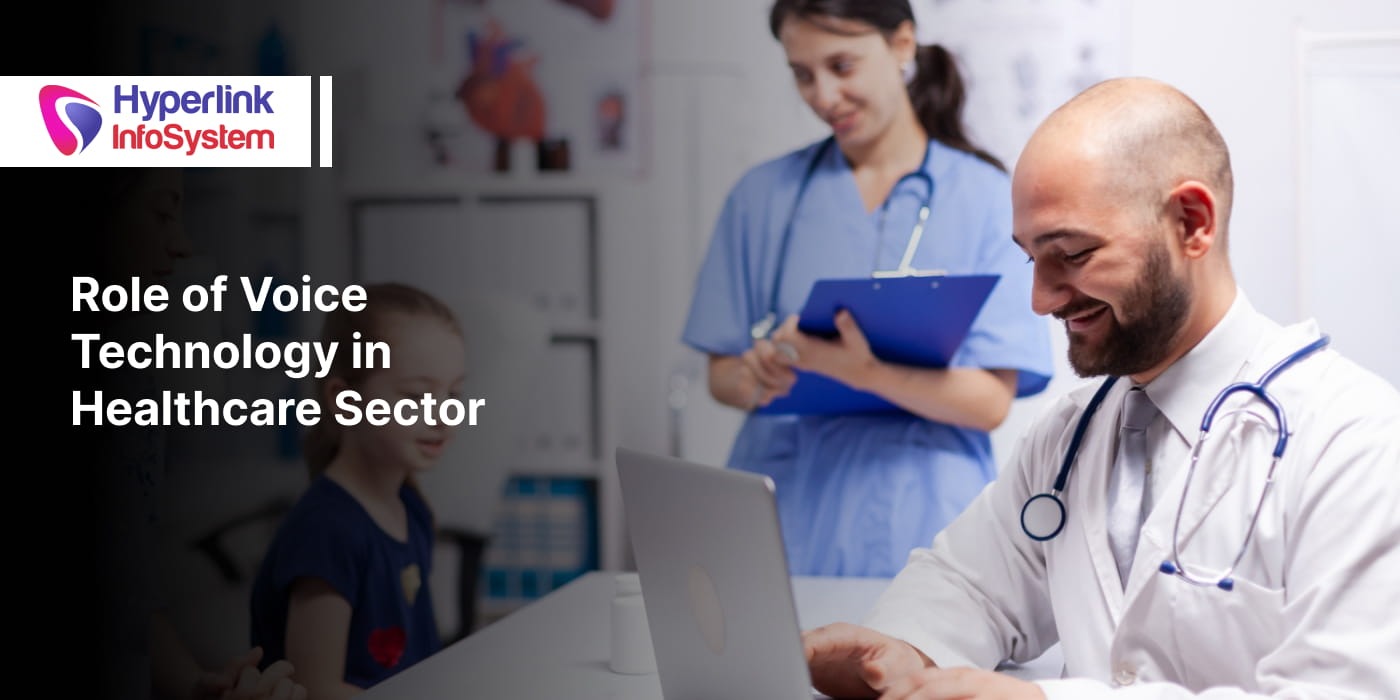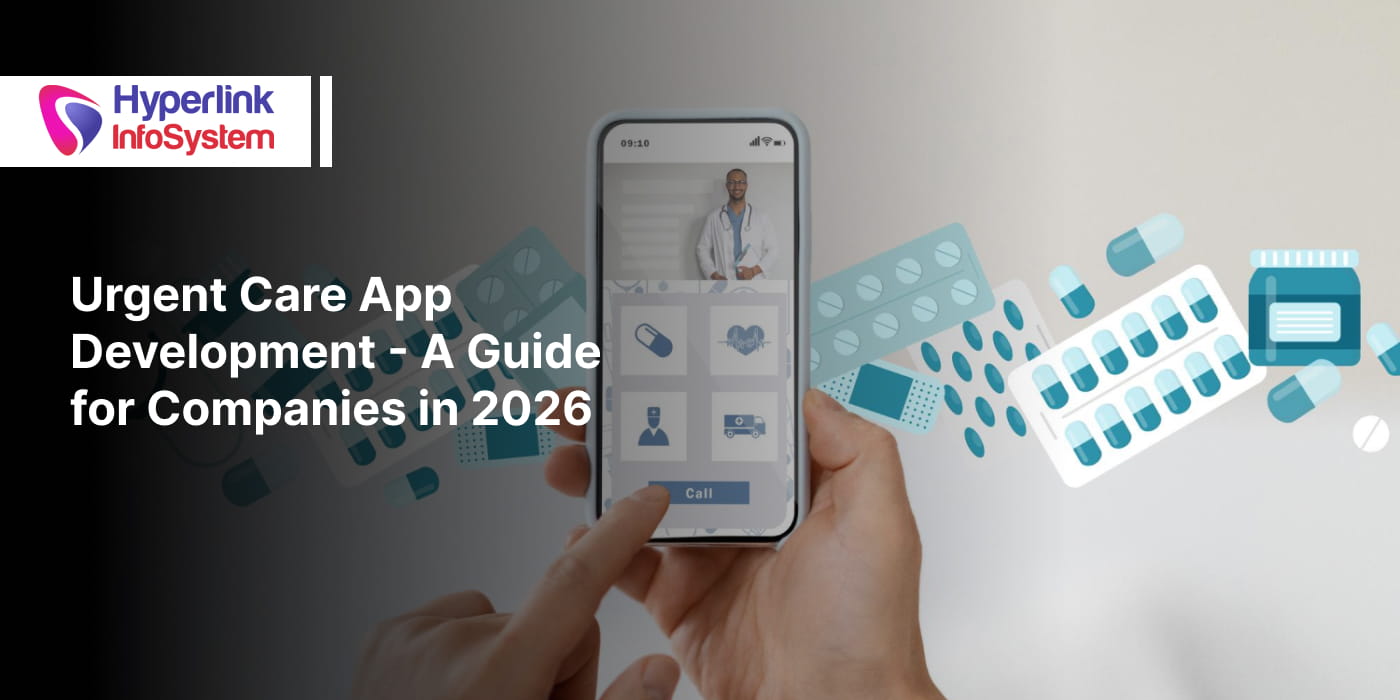NLP in Healthcare: Use Cases, Applications, and More
Aug 2024

NLP, aka Natural Language Processing, is a subfield and branch of AI (artificial intelligence). This field primarily focuses on the interaction between computers and humans leveraging natural language approaches. In recent years, NLP has achieved tremendous advances in a variety of areas, the most beneficial of which is healthcare. Harnessing NLP has helped healthcare providers across the globe improve patient care, streamline operational processes, and foster research. Clinical natural language processing enables computers to interpret, comprehend, and spawn human language. NLP has proven to be a boon in research, patient care, and staff productivity.
NLP works as a personal assistant tool for healthcare professionals and providers alike. Natural language processing project ideas help in better decision-making and improve workplace efficiency, but they can't offer the equivalent level of human expertise and compassion. Healthcare natural language processing helps patients accomplish more satisfactory results by enabling premature ailment identification, tailored treatment approaches, and proactive care coordination. This blog explores how NLP transforms healthcare, emphasizing pertinent use cases and applications.
Role of NLP in Healthcare
Before we jump onto natural language processing use cases and applications of natural language processing, it's important to understand the importance of NLP in healthcare. Let's begin:
- Augmented Patient Care
NLP-powered chatbots deliver patient assistance, answer queries, schedule appointments, and overall enhance the patient experience. Clinical decision support systems can help with rendering treatment approaches and diagnosing illnesses by assessing medical data and performing research. Another observable reality is personalized medicine, with NLP analysing patterns in patient data and customizing treatment strategies.
- Allevated Research and Development
Among the top natural language processing use cases is the acceleration of drug discovery by screening huge numbers of biomedical literature to recognize conceivable drug targets. It also helps with clinical trial optimization by detecting appropriate patients based on healthcare records.
- Administrative Efficiency
Clinical natural language processing helps streamline medical record management by extracting data from amorphous records, and precision, enhancing data accuracy and accessibility. It also computerizes the coding and billing cycle, lessening administrative obligations.
Understanding NLP in Healthcare
Healthcare NLP encompasses the capacity of machines to understand, interpret, and react to human language. Natural language processing projects can help in extracting valuable data from ginormous amounts of unstructured data like medical records, research articles, and clinical notes. This ability is transforming the approach in which healthcare practitioners monitor patient diagnoses, data, and more.
NLP Techniques Used in Healthcare
NLP algorithms provide two major functionalities: processing incoming shapeless text and assembling machine-readable content. To fulfill these pursuits, they engage in a combination of approaches.
- Optical Character Recognition
OCR or optical character recognition, is typically the first step among natural language processing applications. They are targeted at recognizing text in input documents and computerizing them for further processing. OCR holds the capability to extract text in different formats, inclusive of digital photographs, presentations, and scans of published or handwritten notes, logs, and additional documents. OCR systems are pretty valuable in healthcare applications due to their ability to preprocess documents devised during medical operations, like test results, CAT scans, prescriptions, and physicians' notes. This brings it closer to getting included in EHRs.
- Tokenization
When any NLP program parses natural language, it splits it into more diminutive parts (words or sentences) that could be treated individually. These fragments, known as tokens, demarcate the structure of the text for your NLP algorithms. Tokenization cultivates NLP programs to recognize patterns and yank relevant details from incoming text. It enhances the efficacy of NLP models by orienting structure into therefore undeveloped material.
- Named Entity Recognition
Named entity recognition (NER) is an essential stage in natural language processing that witnesses crucial commodities in text such as people's names, dates, locations, and corporation names. NER obliges in the extraction and categorization of pertinent data, hence sprinting the following operations. In healthcare, NER can be trained to realize doctor and patient names, treatments, and pharmacological phrases, thereby contributing to the evolution of useful EHRs.
- Semantic and Sentiment Analysis
At this point, NLP solutions scour deep inside the context and into text units to enhance their connotation and decrease ambiguity. SA, or sentiment analysis, seeks to recognize and classify the attitude (sentiment) demonstrated in a text as positive, negative, or neutral. It's especially advantageous for filtering patient feedback and backgrounds, permitting healthcare staff to competently assess patients' sentiments and introspections.
- Topic Modeling
Natural language processing applications utilize topic modeling to decode semantic patterns and configurations inside text. As a result, they can automatically segregate analogous structures into a bundle of themes reflecting specific kinds of documents.
- Text Classification
Text categorization, also known as tagging, is a vital stage of NLP and ML that diverges text data into varieties. Classification algorithms assign elements to certain groups based on textual rituals. The classification of healthcare natural language processing helps in accelerating and simplifying text probes, which is an essential benefit for healthcare applications.
Natural Language Processing Use Cases In Healthcare
The natural language processing use cases go beyond mere applications of NLP, and many natural language processing project ideas are being derived from the same. The natural language processing use case's role in the healthcare sector is boosted by tech advancements, rendering modern opportunities to enhance patient care, decrease costs, and enhance the productivity of healthcare procedures worldwide.
- Electronic Health Records (EHRs)
NLP is utilized to categorize and interpret immense portions of unstructured text in EHRs, permitting healthcare professionals to extract valuable data for patient care, study, and decision-making.
- Automated Documentation
This is one of the most important natural language processing use cases, and automated documentation is a crucial part. NLP can transcribe and collect communication among healthcare establishments and vendors, confirming that all interactions are documented and efficiently accessible for future authority, compliance, and auditing.
- Contract Management
In clinical natural language processing, contract management can help in extracting and analyzing key data from contracts among suppliers and vendors. This makes it easier to monitor terms, compliance, and renewals with service level agreements (SLAs).
- Clinical Decision Support Systems (CDSS)
NLP aids in the development of CDSS in natural language processing projects by pulling pertinent patient details from different sources to deliver healthcare specialists with actionable acuities and decision-making authorization.
- Predictive Analytics
Natural language processing in healthcare assists in the prediction of disease flare-ups, patient outcomes, readmission threats, and other aspects, qualifying for visionary healthcare interventions to be enforced. NLP in healthcare, when coupled with machine learning (ML), can predict future supply demands based on existing data, trends, and patterns in interactions and orders, allowing proactive inventory surveillance.
- Medical Research and Literature Analysis
NLP is utilized to filter enormous volumes of medical literature and analyze data, stimulating the discovery of unexplored medical insights and the synthesis of existing information.
- Health Surveillance and Public Health Monitoring
Examining social media, news, and other textual data to scrutinize disease eruptions and general health sensations.
- Supply Chain Queries
NLP, via chatbots and/or virtual associates, can provide prompt responses to inquiries concerning order status, stock levels, and shipping pursuits, enhancing supply chain efficiency.
- Personal Health Assistants
This is also one of the natural language processing project ideas. NLP drives conversational agents and chatbots to supply health information, give patients reminders about drugs, aid in monitoring health issues, and make overall healthcare a bit more accessible.
- Feedback Analysis
Feedback analysis is one of the best natural language processing use cases to collect and evaluate healthcare staff comments on suppliers and products. It also helps in discovering new insights and trends that can be leveraged to shape future procurement plans and negotiations with vendors.
- Invoice Processing
It can automate the processing and extraction of invoice data, diminishing errors and shrinking the payment cycle, which is vital for preserving positive associations with suppliers and vendors.
- Clinical Documentation
Automating the generation and cognition of clinical documentation, preserving the time of healthcare personnel, and improving the accuracy of patient records.
- Regulatory Compliance
Clinical natural language processing can help with monitoring conversations and documents for adherence to healthcare legislation and norms, henceforth recognizing and mitigating risks.
- Language Translation
NLP-powered translation solutions can support healthcare businesses in communicating with overseas suppliers more evidently and effectively across linguistic borders.
- Market and Product Research
NLP can help procurement units make informed decisions by aggregating extensive portions of data from numerous sources.
- Language Translation Services
Streamlining multilingual support in healthcare communication and patient supervision, thus overcoming vocabulary barriers in multifarious populations.
- Sentimental Analysis
Among the top natural language processing applications, analyzing reviews and social media posts can greatly help in improving healthcare delivery and patient satisfaction.
- Genomic and Precision Medicine
Natural language processing project ideas can help in analyzing genetic information via texts that can assist with customized therapy. This will be done by detecting links between hereditary distinctions and illnesses.
- Personalized Communication
Applications of natural language processing in healthcare can help you personalize communication approaches based on history and patient/provider preferences. This will result in stronger connections and more abundant negotiations.
- Insurance and Billing
Streamlining insurance claims and invoicing by pulling and researching paramount data from unstructured data.
Natural Language Processing Applications in Healthcare
NLP's excellent text processing and evaluation skills make it ideal for application in a variety of healthcare domains, including:
- Telemedicine
Natural language processing applications can abide by the formation of a chatbot, helping doctors provide optimal treatments to patients. Even though chatbots cannot replace a proper medical consultation, they can help with answering elementary questions, collecting data, and recording outcomes.
- Healthcare Providers
The adoption of medical NLP algorithms facilitates the management of record-keeping for patients. Natural language processing (NLP) instruments can modify electronic health records (EHRs), determine different experiment findings, generate reports, and augment clinical decision support systems. Medical imaging employs NLP for analyzing and describing pictures (e.g., X-rays) for recognizing oddities.
- Pharmaceuticals
Pharmaceutical businesses can leverage healthcare natural language processing to streamline clinical notes and reports, extract language from academic journals, and recover data from patient records. Furthermore, NLP can assist in securing regulatory compliance by automating document processing and catching any divergences.
- Biotechnology
The field of medical science uses applications of natural language processing for text mining. Algorithms empower researchers to comfortably locate material in public databases, clinical trial records, patents, and additional scientific publications. Automating these processes drastically increases the collection of data, while decreasing the prevailing timeline needed for firms to conduct viable research.
Challenges of Implementing NLP in Healthcare
Even though major modern NLP models are much better trained on more data than previous models. However, while adopting applications of natural language processing in patient care, medical establishments, and other software programmers should consider the subsequent limitations:
- Legacy Healthcare Systems
It's a far-fetched dream and still an obstacle to conquer. Many medical organizations still engage and believe in using their outdated software and documentation management systems. Most of these aren't compatible with NLP technologies and aren't incompetent at processing enormous amounts of data.
- Bias
When it comes to natural language processing use cases in healthcare, input data doesn't accurately reflect the assortment of the focal population. This level of bias can come from different sources, including sampling oversights and social or demographic problems. Hence, NLP solutions can deliver similarly lopsided results. These levels of danger can be minimized by engaging in NLP technologies constructed over explainable AI. These technologies justify their results, empowering researchers to ensure the lack or presence of predisposition in judgments.
- Interpretability
Many times, modern-day NLP algorithms produce results that could be difficult to apply and interpret internally. In order to accomplish workable outputs, NLP models are required to be transparent and unambiguous for healthcare providers employing them.
- Quality of Data
The lingo of healthcare is extremely specialized when it comes to natural language processing projects; this also includes specific words and jargon that aren't found elsewhere. Likewise, different words have many meanings, which could pose new problems with categorization and text recognition. Furthermore, ML models demand a specialist practicum to perform with medical texts.
Best Practices for Implementing NLP in Healthcare
Here's an outline for healthcare enterprises considering integrating NLP solutions:
- Define your Use Cases: Consider what you want the NLP tool to accomplish and what objectives you want to achieve with it. This would help you identify the qualities that the NLP product will offer.
- Ensure Regulatory Compliance: The healthcare business is governed by stringent rules and regulations, ranging from HIPAA and the GDPR to local legislation. Confirm that the chosen NLP solution adheres to all necessary data protection regulations, laws, and safety guidelines.
- Regularly Update NLP Algorithms: As the healthcare industry develops, NLP models and algorithms must be regularly reviewed and modified. Evaluate the relevancy of MLP outcomes and carry out any required changes.
- Train the NLP Model: Gather pertinent information to generate a training dataset tailored to your particular requirements.
- Cultivate the NLP tool: When it comes to natural language processing applications, there are three choices for integrating AI software: hiring a reputed business for custom implementation, building one in-house, or purchasing a ready-made solution via outsourcing.
Conclusion
The future of healthcare is inextricably linked with applications of natural language processing. As technology progresses, we should expect incredible solutions in doctor appointment scheduling and natural language processing use cases. More and more top mobile app development businesses are focusing on finding on-demand developers to fully realize the potential of natural language processing projects in the healthcare industry. The healthcare industry's future will be shaped by innovative natural language processing projects in diagnosis, treatment, and patient care.
Many businesses are looking to recruit specialized developers remotely to create programs such as virtual nurses, AI-powered prostheses, and other scanning equipment. However, it is critical to ensure that NLP is built and run responsibly without losing sight of patient well-being, ethical considerations, or comprehensive access to transformational technology. You can also consider partnering with Hyperlink InfoSystem for all your natural language processing projects. Connect with our specialists today to navigate your way through this incredible technology.
Frequently Asked Questions
Data privacy is the highest priority in the healthcare industry, especially with natural language processing applications. Patient information should be safeguarded by robust security measures, compliance with standards such as HIPAA, and data anonymization.
The future of NLP in healthcare appears bright, with potential utilization in psychological wellness, drug development, and monitoring patients remotely.
NLP might look at medical records for structures that may indicate potential challenges, such as dosage disparities or hazardous drug responses. This is the ultimate usage for clinical natural language processing.
Even though natural language processing use cases in healthcare cannot directly produce drugs, it can accelerate the drug development process by assessing enormous amounts of medical literature to find conceivable therapeutic targets.
Latest Blogs

Is BlockChain Technology Worth The H ...
Unfolds The Revolutionary & Versatility Of Blockchain Technology ...


IoT Technology - A Future In Making ...
Everything You Need To Know About IoT Technology ...

Feel Free to Contact Us!
We would be happy to hear from you, please fill in the form below or mail us your requirements on info@hyperlinkinfosystem.com
Hyperlink InfoSystem Bring Transformation For Global Businesses
Starting from listening to your business problems to delivering accurate solutions; we make sure to follow industry-specific standards and combine them with our technical knowledge, development expertise, and extensive research.
4500+
Apps Developed
1200+
Developers
2200+
Websites Designed
140+
Games Developed
120+
AI & IoT Solutions
2700+
Happy Clients
120+
Salesforce Solutions

40+
Data Science

















